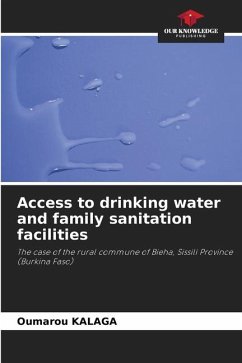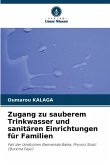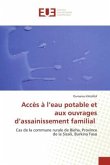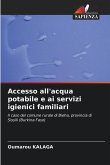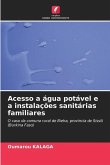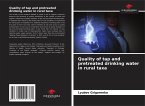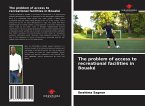The provision of safe drinking water and sanitation facilities has long been a key concern for development players in the Sahel. As a result, initiatives have been launched in Burkina Faso to develop this sector and meet the needs of rural and urban populations. In rural areas, however, the situation is still worrying, hence the focus on the commune of Bieha, whose villages are experiencing difficulties with drinking water and sanitation supplies. The general objective of the study is to examine the conditions for improving access to drinking water and family sanitation facilities in the commune of Bieha. The methodology used to carry out the study consisted firstly of documentary research, followed by the collection of quantitative and qualitative data from 186 households, and finally a phase of data processing and analysis. The results of the study reveal inadequate drinking water infrastructures, poor management of these infrastructures and weaknesses in the operation of the WUAs.
Bitte wählen Sie Ihr Anliegen aus.
Rechnungen
Retourenschein anfordern
Bestellstatus
Storno

